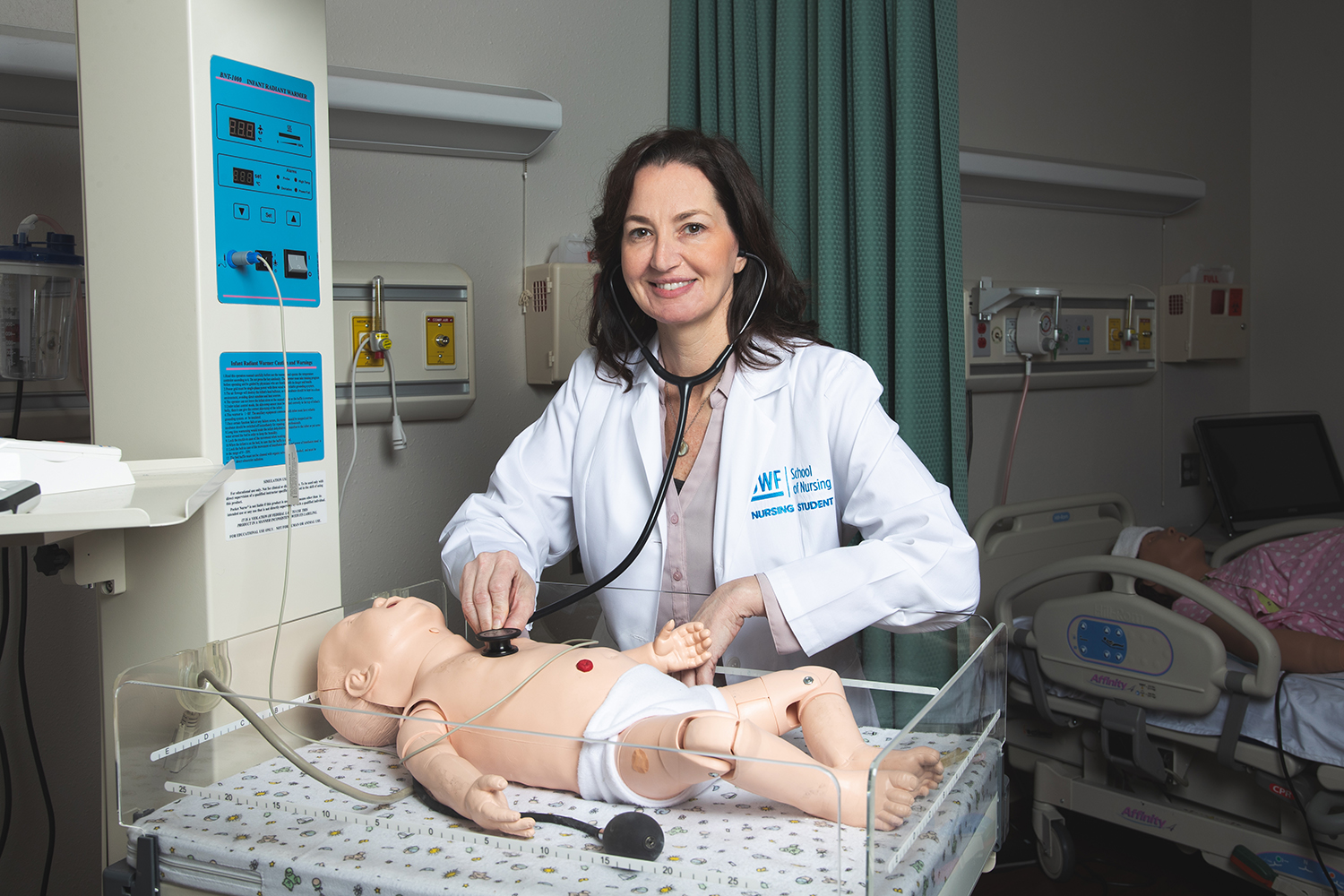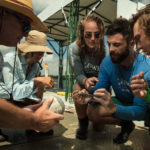UWF’s first graduating class of nurse practitioners to serve vital need
Daily encounters as a trauma performance improvement specialist for Baptist Health Care motivated Nova Francis to enroll in the Earl and Nancy Hutto Master of Science in Nursing program.

“Working in the emergency department over the past 10 years, I have seen some real disparities on access to care,” said the 43-year-old Francis. “Some people have primary care doctors, but they can’t get in because there’s not enough of them so they come to the ER for treatment, and I was just thinking, there’s got to be a better way to keep non-emergent patients out of the ER. The minute I heard they have a master’s program with a family nurse practitioner specialization, I was called to it because I knew that would help my mission in reducing ER visits.”
Francis and 19 others will walk the stage for commencement on Saturday, Dec. 14, at the Pensacola Bay Center, as the first graduating class from the University of West Florida’s family nurse practitioner program. As of Fall 2019, 113 students including the inaugural class of 2017 are enrolled in the program.
A nurse practitioner is an advanced practice registered nurse trained to assess patient needs, diagnose illness and disease, order and interpret diagnostic and laboratory tests, formulate treatment plans and prescribe medication. Requirements for a licensed nurse practitioner in Florida include completing a master’s or doctoral degree program, advanced clinical training and passing a national certification exam.
The national average annual salary for nurse practitioners tops $110,000 and employment of nurse anesthetists, nurse midwives, and nurse practitioners is projected to grow 26 percent from 2018 to 2028 according to the Bureau of Labor Statistics.
“There are a lot of jobs for nurse practitioners, especially in rural settings,” said Dr. Angela Blackburn, interim chair and associate professor in the School of Nursing. “There’s a gap in getting physicians out into the more rural areas and nurse practitioners are filling some of the gaps.”
The American Association of Nurse Practitioners reports Americans make more than one billion visits to nurse practitioners each year. Blackburn cited the steady rise in patients with chronic diseases as an example of why nurse practitioners are in such high demand. The Centers for Disease Control and Prevention reports chronic diseases affect approximately 133 million Americans, representing about 40% of the total population.
Blackburn described the UWF nurse practitioner program as rigorous. Graduates of the program learn how to provide patient-centered, comprehensive care to patients in primary care settings. This may include working in primary care clinics, health departments, rural health centers and hospice settings.
“Nurse practitioners like to look at patients from a holistic perspective which includes primary prevention,” Blackburn said. “They’re also treating patients with chronic diseases. They’re going to be treating patients with complex health conditions such as diabetes and hypertension.”
Francis, who will deliver the graduate student commencement speech, credited the program for enhancing her investigative and leadership skills. She said she learned how to think outside of the box and consider treatment options for her patients beyond those written in a textbook.
“You have to kind of use your gut and do a little deep diving to try and figure out what ultimately is going on with your patient,” Francis said. “Those investigations, that mindset of being a little more comprehensive, has definitely helped me as a practicing nurse.”
Francis enrolled at UWF on a mission to reduce emergency room visits for non-emergent patients. That remains her pursuit as she sets her sights on someday venturing out and running her own practice.
“I think legislation is moving toward where nurse practitioners could have more autonomy to care for their patients independently,” Francis said. “Of course, we all know our limits and can refer out for more complex cases, but hopefully in the near future I’ll be able to run my own direct primary practice.”
For more information about the UWF School of Nursing in the Usha Kundu, MD College of Health, visit uwf.edu/nursing.


